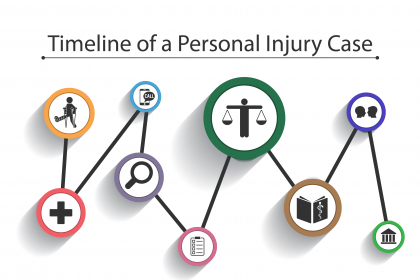
The scope for taking a Personal Injury case can be quite wide when you consider that it can include an accident at work, an accident in a public place or a road traffic accident.
As well as that, the injuries can vary from a sprained ankle to serious head injuries and even can be fatal.
IF YOU HAVE SUFFERED INJURIES WHAT SHOULD YOU DO TO ASSIST IN YOUR LEGAL CASE?
Record Your Injuries.
After the accident – even if it has only been a minor one – you should always see your doctor for a check up.
This is important as a failure to attend your doctor at an early stage may cause difficulty later on. Make sure you tell your doctor that you were involved in an accident and detail all your injuries, both physical and psychological, no matter how trivial they may seem to you at the time. Make sure that the doctor makes a note of these details.
It is very difficult to remember some months or years after the accident how you felt in the”early days.” Buy a diary and keep a record of present symptoms and from then on, record your condition on a regular basis. You should also keep a note of all your medical examinations, when you went, what was said and any medical opinions offered.
In certain circumstances, where a family member dies as a result of a wrongful act of another, an action can be taken against this wrongdoer.
This is called a “Fatal Injury Action” and it most commonly comes about because of medical negligence, accidents in the workplace or road traffic accidents.
Stumbling blocks in taking a case
- Time – If a person is outside the limitation period, they cannot take an action. For personal injuries claims an injured party has, by and large, two years.
Although the Statute of Limitation for personal injury claims is two years, there is an escape clause where a person has no knowledge that an injury is connected with a wrong committed by someone else or is ignorant of the person to sue.
- Private Investigators – It has become common for Defendants or their Insurers to hire private investigators.
These investigators will carry out surveillance on you or may monitor your social media accounts.
They look for evidence to contradict your evidence of the circumstances that gave rise to problem or the extent of your injuries. Increasingly, evidence is being presented in Court of social media accounts or on camera undertaking tasks that contradict their level of disability – people with back injuries limbo dancing!
It is important that we are told accurately how your injury affects you.
Such investigation by the Insurance Company can do no harm to your case once we are in a position to give full and accurate details to the other side.
- Injuries not considered – The Injuries Board is not required to make an assessment if they are of the opinion that it is too complex a matter for them and should be put to the courts directly.
If the injury is wholly or in part psychological, if aggravated damages are being sought or if the claim comes out of surgical treatment then the Board is also not required to make an assessment.
WHAT HAPPENS IF THE CLAIM IS ALREADY SETTLED AND NEW SYMPTOMS ARISE?
In the majority of cases it can take – at a very minimum – twelve months for symptoms to fully settle down and in a lot of cases the symptoms may take a lot longer, or worse, have permanent effects.
If you accept an assessment of compensation in the months after your accident without the proper advice you risk being hugely under compensated should your symptoms continue or even get worse afterwards.
The assessment process with the Injuries Board can be rigid.
When a personal injuries claim is taken before the Courts instead, you submit your claim at the outset and can then update details and particulars of the injuries and wrongs before the hearing of the case. The Injuries Board does not allow this.
Once your application is submitted you cannot update or change your claim at a later stage.
This can be particularly risky where a claim is submitted before your injuries have settled down as the situation can change very quickly leaving the Board assessing what is not really the full extent of your injuries.
For further advice or if you wish to discuss any other legal area please contact reception@lynchsolicitors.ie or telephone 052-6124344.
The material contained in this blog is provided for general information purposes only and does not amount to legal or other professional advice. While every care has been taken in the preparation of the information, we advise you to seek specific advice from us about any legal decision or course of action.

